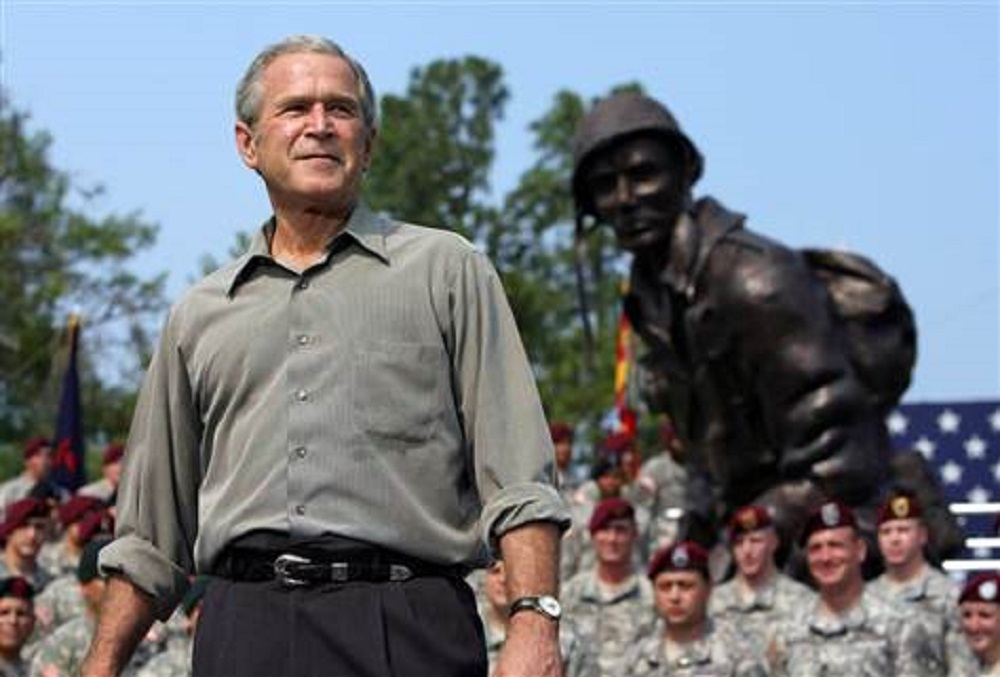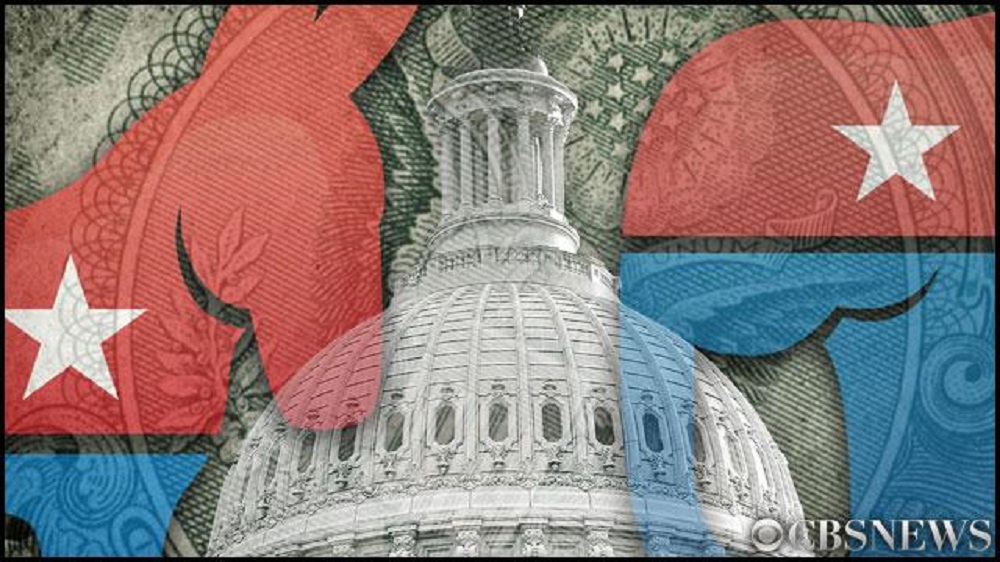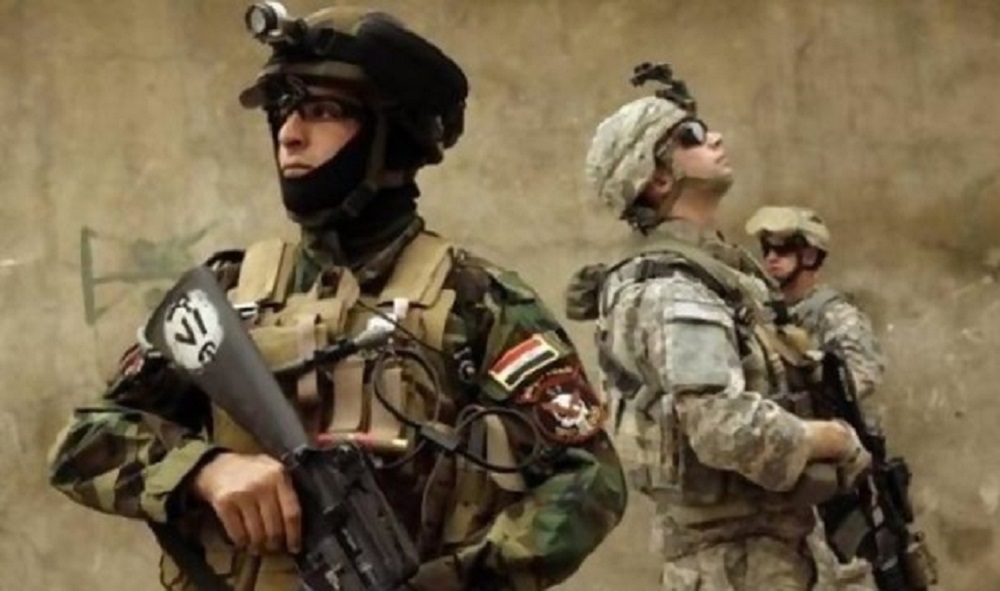End Game for Saddam
A correspondent from a major Arab newspaper recently joked: “I have great news for you,†said the psychologist to his patient (metaphorically referring to the Arabs). “You are not suffering from an inferiority complex. ….You are inferior.†In the Arab mind, it’s not a joke. After 54 years of on-and-off war with Israel, the fact remains that 122 million Arabs have not been able to defeat a small group of tenacious Jewish “infidels†holding on to a sliver of land on the shores of the Mediterranean.
This concept of Arab military inferiority to Israel is deeply entrenched in the Arab psyche. That is why the Arab nations secretly hope that Saddam Hussein will create the long-awaited “Islamic bombâ€â€¦â€¦â€¦and why Vice-President Cheney failed to persuade his Arab hosts to support the United States in an attack on Iraq.
And he will continue to fail despite the overtures of Secretary of State Colin Powell and the moguls from Foggy Bottom at the State Department.
–break–
Attempting to get Arab leaders to end Saddam Hussein’s quest for nuclear capability would be like training camels to fly. It isn’t going to happen. If anything, the opposite will. We can expect our erstwhile Arab “friends†to provide Iraq with moral support, military intelligence and probably the threat of an oil embargo against the West. That is because Iraq’s “Islamic bomb†is perceived by the Arabs as the Arab ticket to military equality with Israel and the Western world, and no Arab leader would dare rain on that parade.
But the Arab world misses the real downside. Ironically, the greatest threat posed by a nuclear Iraq would be to the very Arab states who, today, most seek to appease Saddam Hussein. A nuclear capability would provide Iraq with a “nuclear shield†under which Iraq would become an aggressive nuclear rogue state whose appetite for conquest of its Arab neighbors would not be satiated until the Gulf emirates on its borders had become the newest Iraqi provinces….and Kuwait would be the first to fall. This time, however, there will be no rescue.
And there is no doubt that Iraq is trying to become a nuclear power. That has been clear at least since 1980, and some would say since 1976, when Iraq purchased the Osiraq research reactor from France. When asked why a party to the Non-Proliferation Treaty would want such a large facility, Iraq said it needed it to produce radioisotopes. At the same time, Iraq attempted to buy 25,000 pounds of depleted uranium, which could have no other use than to be irradiated to produce plutonium. After that, no one in their right mind would swallow the “peaceful program for medical research†cover story.
In fact, the Iraqi government already possesses substantial amounts of nuclear materials. The former head of the Iraqi nuclear program has said that Iraq has modest amounts of fissionable materials to produce at least four (4) nuclear bombs within the next three (3) years. It is more than strange that there are five covert ways to acquire the fissile material necessary to produce nuclear weapons (two involving highly enriched uranium (HEU), two involving plutonium and one that could use either) and Iraq is pursuing all five in earnest.
In addition, previous UN weapons inspections indicated that there was a strong likelihood that Iraq has done a substantial amount of work on biological agents. Saddam’s experiments have included injecting aflatoxin, for example, into tear gas. Now why one would want to put an agent that creates long-term liver cancer into tear gas is an interesting question?
It should also be noted from the investigations of Dr. Christine Gosden that when Saddam Hussein gassed thousands of his own people (the Kurds) in Northern Iraq some years ago, the effects of the gassings suggested that he actually had used some of his experimental biological pathogens against them beyond nerve and mustard gas.
From the Western perspective, the only realistic solution to control the development of weapons of mass destruction and its threatened use against the Arab emirates, Israel and the West by a rogue state like Iraq is the elimination of Saddam Hussein and the democratization of Iraq.
As the world witnessed in the aftermath of WWII, the nations of Eastern Europe fell to communism leading to the so-called “domino theory†and the Truman Doctrine of “containment”. If history serves as any precedent, the democratization of Iraq will have the same effect on the Arab world beginning with the seething unpopularity of the Iranian mullahs.
Although not widely publicized, the Defense Department has actually drawn up a covert plan that would not march U.S. soldiers into Baghdad (at least, not immediately) but would assist the Iraqi people in liberating themselves. Only in the past few days has the existence of this plan been revealed (by the Washington Post), although the details have not that is, until now.
According to Defense Department records, the details unfold something like this…..
The heart of the plan involves the creation of a liberated zone in Southern Iraq comparable to what the United States did so successfully in the North in Operation Provide Comfort in 1991.
With U.S. support, the Iraqi National Congress (INC) would establish a firebase in southern Iraq and announce the creation of a provisional Iraqi government that the Bush Administration would quickly recognize. Since nearly two-thirds of the Iraqi population are Shiites, they are seen as natural allies in any political uprising. The U.S. would then begin an intense bombing campaign (as it did in Afghanistan) and airlift thousands of Special Forces troops into southern Iraq. At the same time, INC supporters in the north, in the areas under Kurdish control, would begin signaling their intention to attack. Saddam Hussein would be confronted with a dilemma: whether to send his elite forces south to engage the Americans or, for his own protection, to keep all his forces nearby to guard against an invasion from the north.
In the end, a safe, protected and armed security zone in the South (together with an armed Kurdish onslaught in the North) would allow opposition to the Iraqi dictator to organize around the democratic Iraqi National Congress.
The Southern Corridor would make it possible for this provisional democratic government to gain international recognition, establish a political program for Iraqi political and economic reform, control Iraq’s largest oil field (at Basra) and, most importantly, provide a safe haven for disaffected Iraqi army units thereby leading to the liberation of more and more of the country and the eventual unraveling of the regime.
Saddam’s supporters on the UN Security Council – in particular France and Russia – would then have to calculate the economic and commercial advantages of signing lucrative oil production contracts with the future democratic government of Iraq in the Southern Corridor.
This would be a formidable undertaking and certainly not one that would work if America insists on maintaining the unity of the UN Security Council.
It’s time for the Bush Administration to stop debating time lines, conducting polls, waiting for progress in the Israeli-Palestinian peace process, developing fantasy Arab coalitions, and a European consensus prior to removing Saddam Hussein from power. Iraq’s nuclear clock is approaching midnight.
As Vice-President Dick Cheney related to Israel’s former Ambassador to the U.S. David Ivry (who had commanded the Israeli air strike that destroyed Iraq’s Osiraq reactor in 1980 just hours before it became operational), “If Israel hadn’t taken out that reactor (despite world-wide condemnation of Israel), there would never have been a Gulf War.†If Iraq is allowed to go nuclear, its nuclear shield will make it “untouchableâ€. The fate of the Arab Gulf States will be sealed. And both Bush and Saddam Hussein both know it.
We had best get used to the idea that we are in this battle alone. Should we fail to take up the challenge, sooner or later Iraqi terror will find its way to our doorstep. But, should the Bush Administration rise to the occasion, the slow transformation of the Middle East will begin.
The best chance for peace in that region leads through Baghdad. Liberating Iraq from Saddam Hussein and democratizing that country would send a signal to the entire Arab world that self-determination (which is an essential aspect of the modernization process) is the only viable alternative to external Iraqi aggression or internal threats from Islamic fundamentalism.
Over the long term, a democratic Iraq led by a reformist government in coalition with America against the war on terrorism will ignite the fires of modernization in the Arab world and make us infinitely more secure at home.



